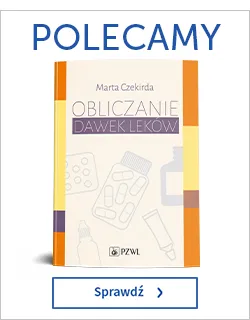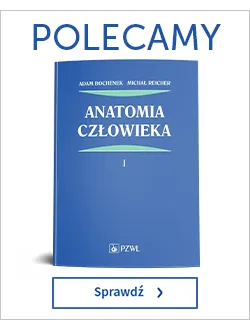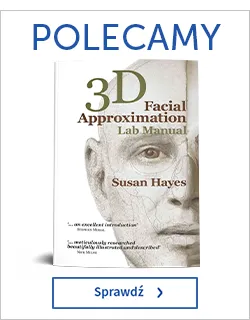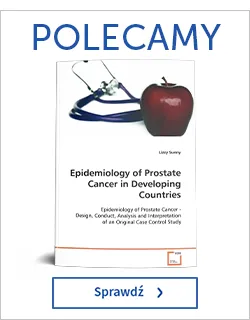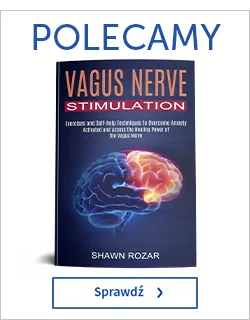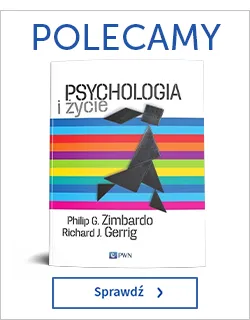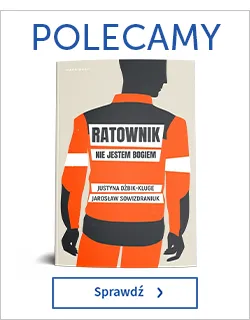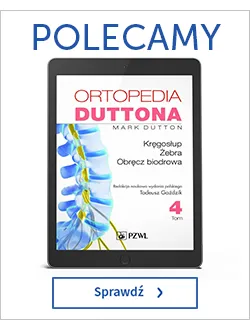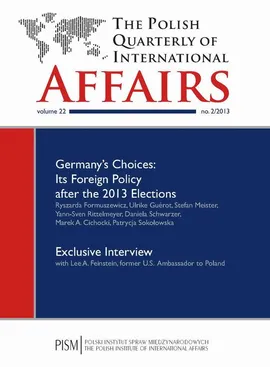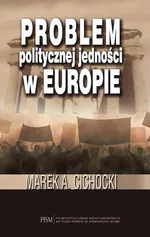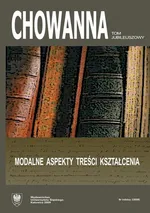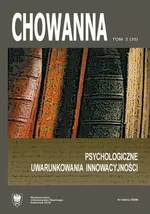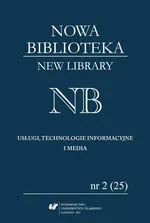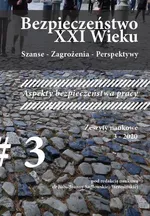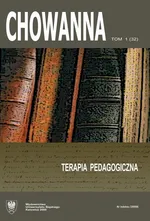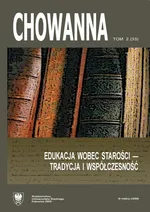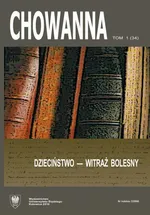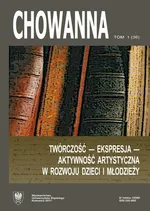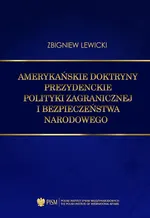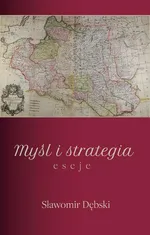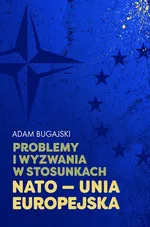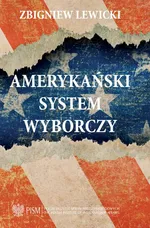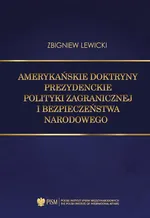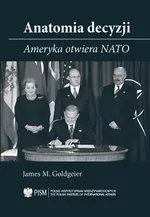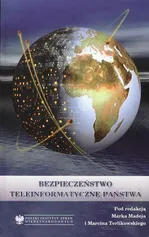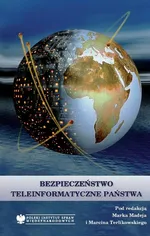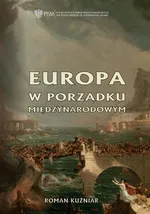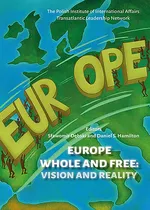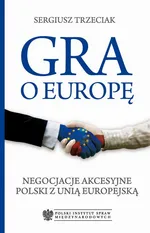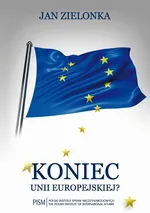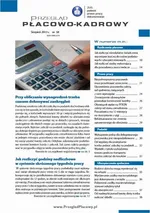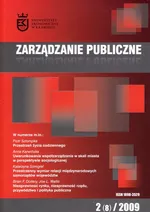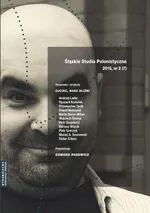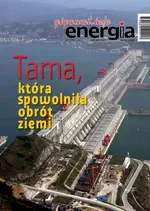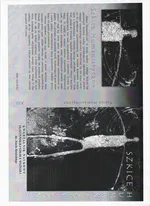- Kategorie:
- Redakcja: Kacper Rękawek, Marcin Zaborowski
- Język wydania: ??angielski_pl_PL??
- ISSN: 1230-4999
- Liczba stron: 144
-
Sposób dostarczenia produktu elektronicznegoProdukty elektroniczne takie jak Ebooki czy Audiobooki są udostępniane online po uprzednim opłaceniu (PayU, BLIK) na stronie Twoje konto > Biblioteka.Pliki można pobrać zazwyczaj w ciągu kilku-kilkunastu minut po uzyskaniu poprawnej autoryzacji płatności, choć w przypadku niektórych publikacji elektronicznych czas oczekiwania może być nieco dłuższy.Sprzedaż terytorialna towarów elektronicznych jest regulowana wyłącznie ograniczeniami terytorialnymi licencji konkretnych produktów.
-
Ważne informacje techniczne
-
Minimalne wymagania sprzętowe:
- procesor: architektura x86 1GHz lub odpowiedniki w pozostałych architekturach
- Pamięć operacyjna: 512MB
- Monitor i karta graficzna: zgodny ze standardem XGA, minimalna rozdzielczość 1024x768 16bit
- Dysk twardy: dowolny obsługujący system operacyjny z minimalnie 100MB wolnego miejsca
- Mysz lub inny manipulator + klawiatura
- Karta sieciowa/modem: umożliwiająca dostęp do sieci Internet z prędkością 512kb/s
-
Minimalne wymagania oprogramowania:
- System Operacyjny: System MS Windows 95 i wyżej, Linux z X.ORG, MacOS 9 lub wyżej, najnowsze systemy mobilne: Android, iPhone, SymbianOS, Windows Mobile
- Przeglądarka internetowa: Internet Explorer 7 lub wyżej, Opera 9 i wyżej, FireFox 2 i wyżej, Chrome 1.0 i wyżej, Safari 5
- Przeglądarka z obsługą ciasteczek i włączoną obsługą JavaScript
- Zalecany plugin Flash Player w wersji 10.0 lub wyżej.
-
Informacja o formatach plików:
- PDF - format polecany do czytania na laptopach oraz komputerach stacjonarnych.
- EPUB - format pliku, który umożliwia czytanie książek elektronicznych na urządzeniach z mniejszymi ekranami (np. e-czytnik lub smartfon), dając możliwość dopasowania tekstu do wielkości urządzenia i preferencji użytkownika.
- MOBI - format zapisu firmy Mobipocket, który można pobrać na dowolne urządzenie elektroniczne (np.e-czytnik Kindle) z zainstalowanym programem (np. MobiPocket Reader) pozwalającym czytać pliki MOBI.
- Audiobooki w formacie MP3 - format pliku, przeznaczony do odsłuchu nagrań audio.
-
Rodzaje zabezpieczeń plików:
- Watermark - (znak wodny) to zaszyfrowana informacja o użytkowniku, który zakupił produkt. Dzięki temu łatwo jest zidentyfikować użytkownika, który rozpowszechnił produkt w sposób niezgodny z prawem.
- Brak zabezpieczenia - część oferowanych w naszym sklepie plików nie posiada zabezpieczeń. Zazwyczaj tego typu pliki można pobierać ograniczoną ilość razy, określaną przez dostawcę publikacji elektronicznych. W przypadku zbyt dużej ilości pobrań plików na stronie WWW pojawia się stosowny komunikat.
The Polish Quarterly of International Affairs 2/2013
(ePrasa)-
Druk: Warszawa, 2013
-
Wydanie/Copyright: wyd. 2
-
Autor: Daniela Schwarzer, Marek A. Cichocki, Patrycja Sokołowska, Ryszarda Formuszewicz, Stefan Meister, Ulrike Guérot, Yann-Sven Rittelmeyer
-
Redakcja naukowa: Kacper Rękawek, Marcin Zaborowski
-
Wydawca: Polski Instytut Spraw Międzynarodowych
-
Formaty:
ePub mobi PDF (Watermark)WatermarkZnak wodny czyli Watermark to zaszyfrowana informacja o użytkowniku, który zakupił produkt. Dzięki temu łatwo jest zidentyfikować użytkownika, który rozpowszechnił produkt w sposób niezgodny z prawem. Ten rodzaj zabezpieczenia jest zdecydowanie najbardziej przyjazny dla użytkownika, ponieważ aby otworzyć książkę zabezpieczoną Watermarkiem nie jest potrzebne konto Adobe ID oraz autoryzacja urządzenia.
The Polish Quarterly of International Affairs 2/2013
"The Polish Quarterly of International Affairs" jest anglojęzycznym kwartalnikiem Polskiego Instytutu Spraw Międzynarodowych poruszającym kwestie Europy Środkowej i Wschodniej. Poprzez publikowane w nim artykuły dotyczące współczesnych wydarzeń, stanowi forum do analiz i debat na temat spraw międzynarodowych.
Każde wydanie zawiera zbiór autorskich artykułów poddanych ocenie „peer review”, a także recenzje książek.
"The Polish Quarterly of International Affairs" is the English language journal and has a Central and Eastern European focus. It provides a forum for the analysis and debate of international affairs through a collection of original, peer reviewed articles on a contemporary theme.
Ryszarda Formuszewicz
Waiting for Germany’s European Choices
The election of the 18th German Bundestag has attracted more international interest than ever. Virtually no previous German parliamentary election has been watched in Europe like this one.
Ulrike Guérot
Merkel’s European and Foreign Policy Legacy on the Eve of the German Elections: European Hegemon or Global Player?
It is not easy to judge German Chancellor Angela Merkel’s European and foreign policy, as the picture is varied after nearly eight years in power. Outside of Germany, Merkel has been consistently and repeatedly blamed for a “too little too late” attitude during the euro crisis and for her tough course of austerity, especially by the Anglo-Saxon press and in Southern European countries. In Germany, however, a large number of people, 70%, approve of her crisis management and admire her for guiding Germany with a tranquil hand quite well through the crisis.
Stefan Meister
Germany’s Russia Policy under Angela Merkel: A Balance Sheet
Germany’s Russia policy is in flux. In the past, Germany has always been an advocate of Russian interests in the European Union and a strategic partner in energy and economic cooperation. Over the last few years, though, we have observed increasing misunderstandings in bilateral relations, with both sides speaking about the same topics but having different priorities and interests.
Yann-Sven Rittelmeyer
From One Electoral Campaign to Another: Franco-German Relations in Turbulent Times
Due not only to its importance but also to the place it leaves to symbolic politics, the Franco-German relationship is often described through emotions and in a Manichaean way, alternating between a description of two close friends and a nearly divorced couple. What is the current state of the Franco-German relationship regarding its old history and what are the new factors determining it? To what extent has the window of opportunity constituted by the Élysée Treaty been affected by the national and European contexts? What are its perspectives?
Daniela Schwarzer
Germany’s Role and Strategy in the Euro Area—Determining Factors and Scenarios
Three years into the new debate on Germany in Europe, many questions remain to be settled. This article seeks to contribute to this ongoing reflection by first discussing Germany’s approaches to the management of the sovereign debt crisis and to governance reform in the euro area in order to highlight the underlying strategy, its preferences and the driving forces behind them. Second, it seeks to demystify the debate on Germany’s hegemonic strength in Europe by investigating its evolving power base. Finally, the article gives an outlook on possible upcoming challenges that German and European leaders will be facing with regard to European integration.
Marek A. Cichocki
German Policies Vis-a-Vis Baltic Sea Region Challenges
The policies pursued by Berlin have been increasingly focused on the Baltic Sea region, particularly in recent years. The reasons underlying such a state of affairs include the obvious interests of the Baltic coast, northern Länder of the Federal Republic—Schleswig-Holstein, Mecklenburg and Hamburg—whose role and importance in the formation of pan-German policies have been clearly growing since the reunification of Germany. This has been clearly demonstrated by the involvement of the federal government to the benefit of the shipyard industry, development of port and transport infrastructure, as well as a comprehensive approach to social and economic development of the German coast along the Baltic.
Patrycja Sokołowska
Germany’s Foreign and Security Policy in the Western Balkans under Chancellor Angela Merkel’s Leadership: Current Situation and Prospects
One is forced to wonder about Germany’s current motives and its future involvement in the Western Balkan under Chancellor Angela Merkel’s leadership. In this context, the article aims to analyse the instruments of German involvement in the region under the government of the Grand Coalition of CDU/CSU-SPD and the CDU/CSU-FDP coalition of 2005–2013.
REVIEW ARTICLE
Ola Cichowlas
In Russia, It Is Deja-vu All Over Again: How Russians Fell Back in Love with the KGB and Stalin
REVIEWS
Wojciech Lorenz
Robert Kupiecki: Siła i solidarność. Strategia NATO 1949–1989 (Strength and Solidarity: NATO Strategy 1949–1989)
Alejandra Álvarez, Kinga Brudzińska
Gustavo A. Flores-Macías: After Neoliberalism? The Left and Economic Reforms in Latin America
INTERVIEW
PISM Director Marcin Zaborowski Interviews Lee A. Feinstein,
former U.S. Ambassador to Poland 133
-
Inne autora
-
Inne z kategorii
-
Inne wydawcy
Inni Klienci oglądali również
Przegląd płacowo-kadrowy sierpień 2013 r. nr 58
W numerze m.in.:Rozliczenia płacoweJak rozliczyć nieodpłatne świadczenia wyceniane inaczej do celów podatkowych i ubezpieczeniowych ... 10Jak rozliczyć osobę wykonującą dla pracodawcy prace twórcze ... 14Prawo prac...
Zarządzanie Publiczne nr 2(8)/2009
ISSN 1898-3529
W numerze [Contents]:
Piotr Sztompka: Przestrzeń życia codziennego [Space of Everyday Life]. s. 5–30.
Rafał Sułkowski: Ocena wsparcia MSP przez fundusze poręczeniowe i pożyczkowe [An Evaluation of t...
„Śląskie Studia Polonistyczne” 2015, nr 2 (7): Rozprawy i artykuły: Ojciec, nasz bliźni. Prezentacje: Edward Pasewicz
Red. naczelny Adam Dziadek, redaktorzy materiałów w części „Ojciec, nasz bliźni” Krzysztof Kłosiński, Dawid MatuszekDrugi numer „Śląskich Studiów Polonistycznych” z 2015 roku w zasadniczej części poświę...
Energia Gigawat nr 1-2/2018
Ogólnopolskie czasopismo szeroko pojętej branży energetycznej: elektroenergetyka, ciepłownictwo, dystrybucja energii, gornictwo węgla, nafty i gazu, rafinacja ropy naftowej, odnawialne źródła energii, hutnictwo, wytwarzanie energii.
Szkice Humanistyczne tom IX, nr 2-3, vol.19/2009
Kwartalnik naukowy - ogólnopolski, zawiera prace z następujących dziedzin: filozofia, socjologia, pedagogika, politologia, hiztoria, fizjoterapia, zdrowie publiczne i kultura fizyczna
Cogito nr 2 (488)
„Cogito” to jedyny młodzieżowy DWUTYGODNIK, który z sukcesem pomaga młodym ludziom w wieku 15–19 lat przygotować się do matury z języka polskiego, matematyki, WOS-u, biologii i geografii. Publikuje arkusze do egzamin&oacu...
Recenzje
Nikt nie dodał jeszcze recenzji. Bądź pierwszy!
Zgłoś nadużycie

